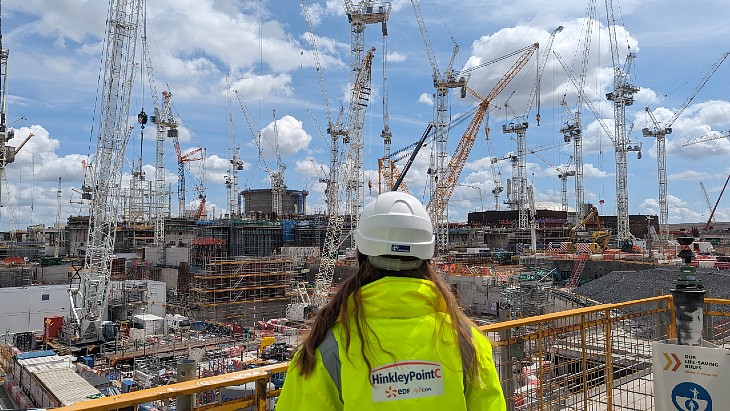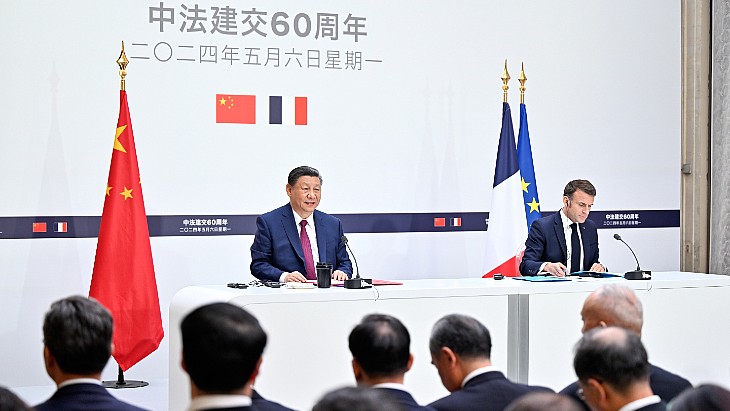UK launches SMR selection competition

The UK's Energy Security Secretary Grant Shapps officially launched GBN on Tuesday, saying the aim of the arms-length body was to "drive the rapid expansion of new nuclear power plants in the UK at an unprecedented scale and pace".
When the Powering up Britain policy paper was unveiled in March, it said that the SMR competition would be the top priority for the newly created GBN, with "an ambition to assess and decide on the leading technologies by Autumn". The detailed timeline published on Tuesday says the first stage, of market intelligence gathering, concluded in June 2023, with the "technology initial down-selection, launched in July, concluding in Autumn 2023". It adds that "the next phase to launch as quickly as possible after that ... successful technologies will be supported to be ready to enable a Final Investment Decision by 2029".
Shapps, speaking to reporters at the launch, said the aim was to have the first SMRs up and running "in the early 2030s". Although there is no immediate funding commitment announced as part of the competition launch, he said that the contract document suggested the total could eventually reach GBP20 billion (USD26 billion).
GBN's over-arching role is to help the UK to move towards the UK government's goal to provide a quarter of the UK's electricity from nuclear energy by 2050 - a task which includes the need to "consider the potential role of further large gigawatt-scale nuclear power plants" in addition to the current Hinkley Point C and proposed Sizewell C projects.
Shapps said: "Britain has a rich history as a pioneer of nuclear power, having launched the era of civil nuclear power - and I’m proud to be turbocharging its revival and placing our country once again at the forefront of global innovation." He said lessons had been learned "from the past developer-led approach", and government backing with GBN was going to create "long-term market certainty" and oversee the process from development to deployment.
Andrew Bowie, Minister for Nuclear, said: "I look forward to seeing the world-class designs submitted from all around the world through the competitive selection process, as the UK takes its place front and centre in the global race to unleash a new generation of nuclear technology."
Interim chairman of GBN, Simon Bowen, said: "Building on the work done at Hinkley Point and Sizewell, today’s announcement of the start of the SMR selection process signifies a real step forward in delivering the scale of nuclear power that Britain needs for a secure, sustainable energy future. We look forward to working with all interested parties - technology vendors, the supply chain, the wider industry and local communities as we move this essential programme forward."
In an interview ahead of the launch, for the Financial Times, Shapps said the UK engineering group Rolls-Royce SMR was "obviously in a good position", having already received GBP210 million (USD275 million) of government grants for its project. At the launch he said that he expected between two and four different technologies to be selected and said by the autumn he wanted a shortlist of "finalists to go through to the final design stage".
Asked about the process of selecting sites, he said there was no shortage of options at the moment, with existing and former nuclear locations keen to become home to SMRs.
Tom Greatrex, CEO of the Nuclear Industry Association, said: "Focus on the SMR selection will demonstrate the commitment to deployment of innovative technologies and open up new opportunities for the UK industrial supply chain here and abroad. There are a range of sites and communities across the country ready to host SMR technology, alongside the large scale nuclear capacity we will also need."
There are many different small modular reactors in development around the world. The UK's best known offering so far is Rolls-Royce SMR, a 470 MWe design based on a small pressurised water reactor which has progressed to the second stage of the UK's Generic Design Assessment, the only SMR to reach that stage so far. The company has also identified its preferred sites. But others, with prospective orders from other countries, are set to enter the competition.
Among them is GE Hitachi, whose CEO Jay Wileman said they "hope and expect" the UK's nuclear ambitions "will be delivered by multiple SMR operators and we look forward to playing our part in delivering a substantial share of this capacity ... we have assembled a first-class team to deliver the BWRX-300 in the UK and today’s news will help accelerate its deployment while we continue to develop a robust UK supply chain".
Also announced were a series of grants, totalling GBP157 million (USD205 million) including GBP77.1 million "to accelerate advanced nuclear business development in the UK and support advanced nuclear designs to enter UK regulation, maximising the chance of small and advanced modular reactors being built during the next Parliament". (The next Parliament is expected to run from 2024 to 2029).
There is also GBP58 million for further development and design of advanced modular reactor and next generation fuel - GBP22.5 million for Ultra Safe Nuclear Corporation UK "to further develop the design of a high temperature micro modular reactor", GBP15 million to the National Nuclear Laboratory in Warrington "to accelerate the design of a high temperature reactor following its success in Japan" and up to GBP16 million to the National Nuclear Laboratory in Preston "to continue to develop sovereign coated particle fuel capability, a type of robust advanced fuel which is suitable for high temperature reactors".
There are also awards under the GBP22.3 million Nuclear Fuel Fund:
- GBP10.5 million to Westinghouse Springfields "to manufacture more innovative types of nuclear fuel for customers both in the UK and overseas"
- GBP9.5 million to Urenco UK in Capenhurst, Chester "to enrich uranium to higher levels, including LEU+ and high-assay low-enriched uranium
- GBP1 million to Nuclear Transport Solutions, part of the Nuclear Decommissioning Authority, "to develop transport solutions to facilitate a supply chain for highly enriched uranium in the UK and internationally"
- GBP1.2 million to MoltexFLEX "to build and operate rigs for the development of molten salt fuel"
David Landon, CEO of MoltenFLEX, said: "This award represents an important signal of support from government for advanced modular reactors in the UK, and helps MoltexFLEX make significant progress in commercialising the fuel salt manufacturing route for the FLEX reactor."
Jez Stewart, National Secretary of the trade union Prospect, said: “Government support for British technology exporters like Rolls-Royce SMR and MoltexFLEX will generate new high-quality, long-term jobs and careers within the nuclear industry in the UK."
Nuclear's share of energy in the UK is currently about 15%, however almost half of the country's current capacity is due to be retired by 2025 and all but one of its reactors will retire by 2030. In its Energy Security Strategy released in April 2022, when Boris Johnson was still prime minister, the UK government said its ambitions was for eight new reactors, plus SMRs helping to produce 24 GWe capacity by 2050.
Nuclear has continued to be backed by Johnson's successors as prime minister, Liz Truss, who was in post for less than two months, and current prime minister Rishi Sunak, who took over the role in October. However there have been some frustrations at delays to getting GBN up and running - in January a joint open letter from a trade union, nuclear industry representatives and all-party parliamentary group warned there was no time spare.









_88592.jpg)
_66488.jpg)

